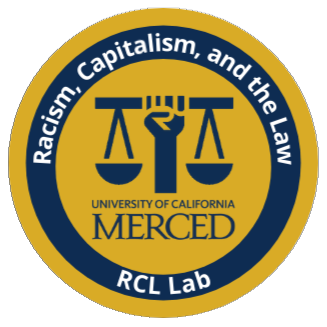This article explores the precarious conditions deported Guatemalans encounter in their country of birth, alongside a consideration of how Guatemalan deportees’ agency is structured by precarity yet mediated by individual factors such as foreign-earned capital and negative credentials. Previous research has found that deportees are often criminalized, stigmatized, and blamed for social problems. Researchers have also found that deportees can be well-suited for work in the transnational call center sector when they have adequate English skills. This raises the question of how deportees’ individual characteristics and the local context of reception influence their (re)incorporation. This study, based on interviews with 34 Guatemalan deportees, reveals that deportees have varied trajectories, yet that the availability of call center jobs combined with deportees’ capacity and agency creates a bifurcation in labor market outcomes between deportees who secure jobs in call centers and those who do not.
Publications by Year: 2016
2016
This article contests the contention that sociology lacks a sound theoretical approach to the study of race and racism, instead arguing that a comprehensive and critical sociological theory of race and racism exists. This article outlines this theory of race and racism, drawing from the work of key scholars in and around the field. This consideration of the state of race theory in sociology leads to four contentions regarding what a critical and comprehensive theory of race and racism should do: (1) bring race and racism together into the same analytical framework; (2) articulate the connections between racist ideologies and racist structures; (3) lead us towards the elimination of racial oppression; and (4) include an intersectional analysis
In the spring of 2014, President Obama’s administration reached a landmark of over 2 million deportations—more in under six years than the sum total of all deportations prior to 1997. Mass deportation has not affected all communities equally: the vast majority of deportees are Latin American and Caribbean men. Today, nearly 90 percent of deportees are men, and over 97 percent of deportees are Latin American or Caribbean. This article explores the global context under which mass deportation has occurred and draws parallels with mass incarceration. Whereas other scholars have characterized mass deportation as a tool of social or migration control, this article argues that mass deportation is best understood as a racialized and gendered tool of state repression implemented in a time of crisis. I argue that the confluence of four factors has created the conditions of possibility for mass deportation from the United States: (1) nearly all deportees are Latin American and Caribbean men; (2) the rise of a politics of fear in the aftermath of the attacks of September 11th; (3) the global financial crisis; and (4) the utility of deportees.
By the time President Obama leaves the Oval Office there will have been 3 million deportations from the United States during his eight years in office. This sum is 50 percent more than the total number of all deportations prior to 1997, and far more than any previous U.S. president. I argue in this essay that the confluence of four factors in recent years has created the conditions for mass deportation from the United States: (1) nearly all deportees are Latin American and Caribbean men; (2) the rise of a politics of fear in the aftermath of the terrorist attacks of September 11, 2001; (3) the global financial crisis; and (4) the potential that mass deportation creates for corporate profit-making. I place this argument in the larger context of race and ethnicity in the capitalist world-system.
The implementation of restrictive immigration laws in 1997 in the United States has led to the deportation of hundreds of thousands of legal permanent residents—denizens who had made the United States their home. Mass deportations of denizens have given renewed importance to territorial belonging and legal citizenship for theories of citizenship, a relatively neglected area of scholarship in this field. This article draws from interviews with 30 deported Jamaicans who were once legal permanent residents of the United States to argue that denizens often feel “like citizens” based on their family and community ties to the United States, yet that their allegiance and sense of belonging is primarily to their family and community—not to the state. In this sense, there is a disconnect between the law—which privileges legal citizenship—and the daily lives of denizens—in which they can experience a profound sense of belonging in their communities.
This article contests the contention that sociology lacks a sound theoretical approach to the study of race and racism, instead arguing that a comprehensive and critical sociological theory of race and racism exists. This article outlines this theory of race and racism, drawing from the work of key scholars in and around the field. This consideration of the state of race theory in sociology leads to four contentions regarding what a critical and comprehensive theory of race and racism should do: (1) bring race and racism together into the same analytical framework; (2) articulate the connections between racist ideologies and racist structures; (3) lead us towards the elimination of racial oppression; and (4) include an intersectional analysis.


